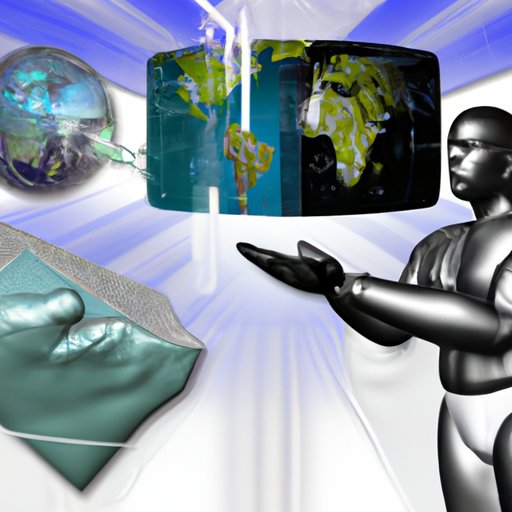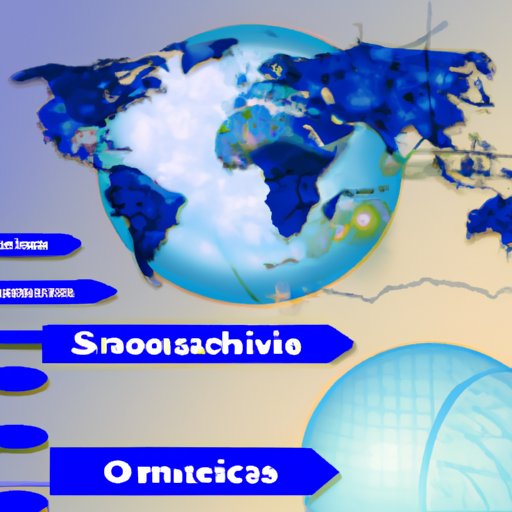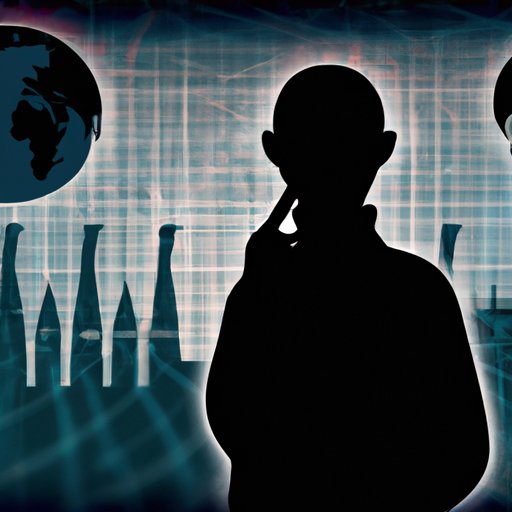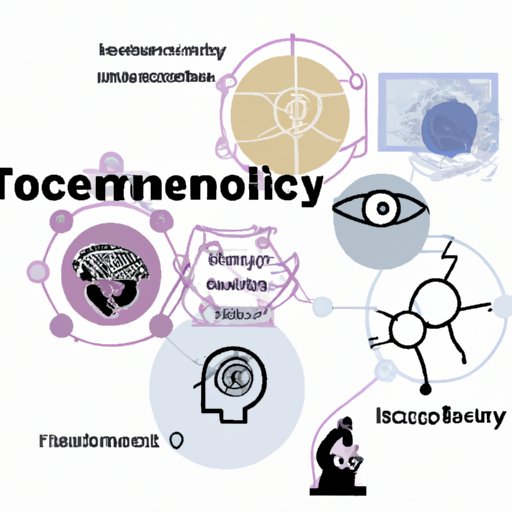Introduction
Science is the systematic study of the natural world through observation and experimentation. Its foundation lies in the use of evidence-based research to discover new truths and make sense of the universe around us. Over the centuries, science has had an enormous impact on the course of human history. From the invention of fire to the development of artificial intelligence, science has been at the forefront of technological innovation and social change.

Examining the Impact of Scientific and Technological Progress on Society
The introduction of modern technologies has revolutionized the way we live our lives. From the comfort of our homes, we can access a wealth of information with just the click of a button. We have seen advances in medicine that have extended life expectancy, improved communication systems that enable us to stay connected with family and friends across the globe, and transportation innovations that have made travel easier and faster than ever before. All these developments are a testament to the power of science and technology in transforming our daily lives.
However, despite the many benefits of modern technology, there are also drawbacks to consider. The digital age has resulted in an increasing reliance on computers and devices that can be vulnerable to cyberattacks and data breaches. Furthermore, the increased availability of information has led to a heightened level of distraction, making it difficult to focus on important tasks. These issues should be addressed in order to ensure that the advancements of science and technology are used responsibly and safely.
Investigating the Role of Science in Shaping Human History
Throughout history, science has played a major role in shaping the course of human civilization. From the dawn of agriculture to the industrial revolution, science has enabled humans to advance their knowledge and understanding of the world around them. As a result, it has had profound effects on social and cultural aspects of society.
For example, the invention of the printing press in the 15th century allowed for the spread of ideas and knowledge like never before. This gave rise to the Enlightenment period, which was characterized by a shift towards rational thinking and the emergence of new ideologies such as democracy and capitalism. Similarly, the discovery of electricity in the 19th century provided the basis for the creation of new industries, leading to the growth of cities and the expansion of global trade.
In addition to its social and cultural effects, science has also had a significant impact on the economy. The development of new technologies has enabled businesses to increase productivity, while advances in medical research have led to improved health outcomes and lower healthcare costs. In this way, science has played an essential role in driving economic growth and prosperity.
Assessing the Impact of Science in Everyday Life
Today, science has become an integral part of everyday life. Innovations in medicine have enabled us to treat and prevent a range of illnesses and diseases. Advances in transportation have made it easier and faster to get from one place to another. And innovations in communication have allowed us to stay connected with people all over the world.
In the field of medicine, scientists and doctors have made tremendous strides in improving public health. Vaccines have been developed to protect against a variety of diseases, while medical imaging techniques such as CT scans and MRI machines have enabled physicians to diagnose and treat conditions more accurately than ever before. In addition, breakthroughs in genetics have unlocked the potential to cure hereditary diseases, while stem cell research has opened up new possibilities for regenerative therapies.
In the realm of transportation, developments in aviation technology have made air travel safer and more efficient. Automobiles have become more reliable and fuel-efficient, while the advent of high-speed rail networks has dramatically reduced travel times. Similarly, in the area of communication, the internet has revolutionized the way we interact with each other, allowing us to share information and ideas instantaneously.

Analyzing the Effects of Science on Globalization
The advances of science and technology have also had a profound impact on the process of globalization. The proliferation of the internet has enabled people to connect with each other regardless of geographic location, creating a truly global community. Similarly, advances in transportation have made it easier to travel between countries, facilitating the movement of goods, services, and ideas.
At the same time, the increased interconnectivity of the world has created new challenges. The need for effective cross-cultural communication has become paramount, as people from different backgrounds must learn to understand each other in order to work together effectively. In addition, the rapid pace of technological change has made it difficult to keep up with the latest advancements, presenting a challenge for businesses and governments alike.
Discussing the Challenges Faced by Scientists and Engineers
As science and technology continue to evolve, so too do the ethical considerations faced by scientists and engineers. With the development of new technologies comes the need for responsible use, as well as vigilance against misuse or abuse. In addition, scientists and engineers must grapple with the pressure to perform, as the expectation for results increases in an ever-competitive field.
In the wake of recent advances in artificial intelligence, for example, researchers have called for the implementation of ethical frameworks to guide the development of AI. Similarly, in the field of biotechnology, scientists must take into account the potential consequences of their actions, as the manipulation of genes could have far-reaching implications for the future of humanity.

Evaluating the Future Implications of Scientific Advancement
The possibilities for a brighter future are within reach. With continued progress in science and technology, we can look forward to a world where disease is eradicated, poverty is eliminated, and global warming is reversed. However, it is important to recognize that there are still many challenges ahead. Scientists and engineers must remain vigilant in their efforts to ensure that new technologies are used responsibly and ethically, while also addressing the pressing social and environmental issues of our time.
Conclusion
In conclusion, science has had a profound impact on society, from its role in shaping human history to its implications for globalized interconnectivity. While technological progress has brought numerous benefits, it has also created new challenges that must be addressed. Additionally, scientists and engineers must grapple with ethical considerations in order to ensure that their work is used responsibly. Ultimately, the future of science holds immense promise, but only if we continue to strive for responsible progress and a brighter tomorrow.
(Note: Is this article not meeting your expectations? Do you have knowledge or insights to share? Unlock new opportunities and expand your reach by joining our authors team. Click Registration to join us and share your expertise with our readers.)
